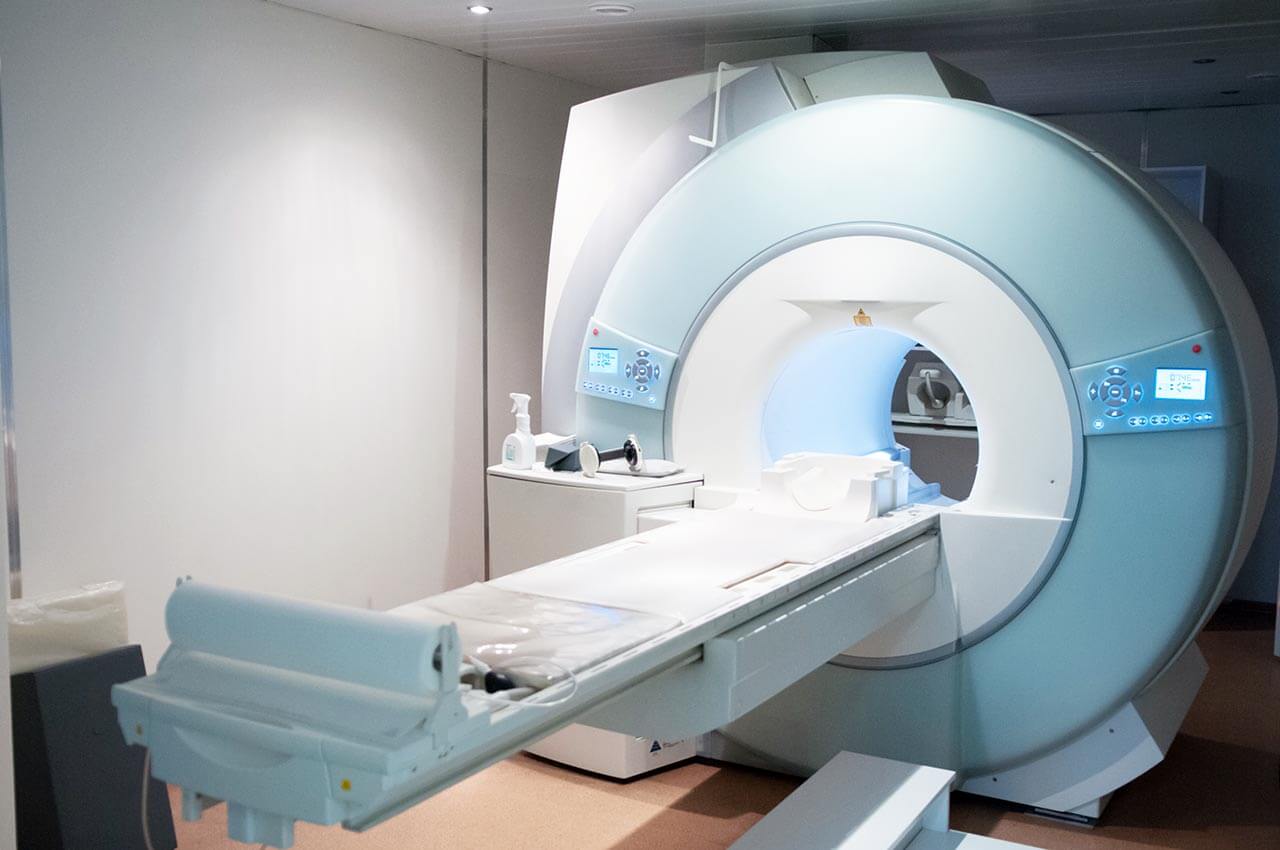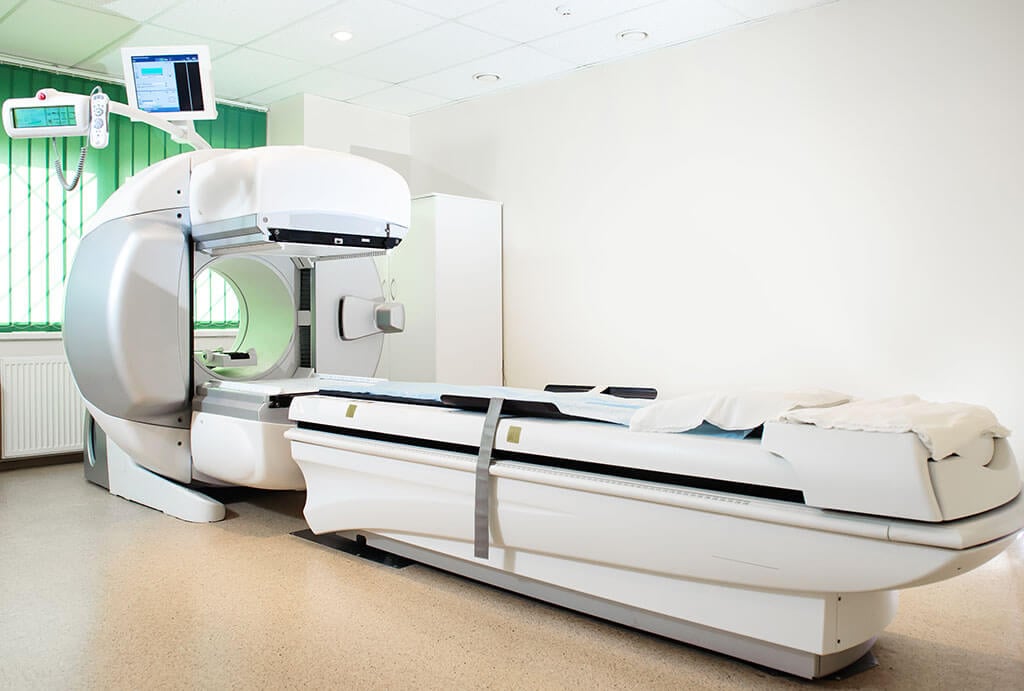
About the Department of Rheumatology at DKD HELIOS Clinic Wiesbaden
The Department of Rheumatology at the DKD HELIOS Clinic Wiesbaden offers the full range of diagnostic and therapeutic services in the area of its specialization. The highly qualified doctors of the medical facility provide effective treatment of inflammatory and degenerative rheumatic diseases, musculoskeletal pathologies caused by such metabolic disorders as osteoporosis, gout, diabetes mellitus, as well as soft tissue rheumatism. Of particular interest is the treatment of systemic inflammatory rheumatic diseases. The diagnostics is carried out using modern laboratory tests and imaging methods. The department's rheumatologists cooperate with highly qualified specialists from the related medical fields. Such an approach allows them to develop optimal treatment regimens and achieve successful results. The therapeutic process is based on the intake of innovative drugs, including biological ones. Each treatment regimen is unique and adapted to the individual clinical indications of the patient. The Chief Physician of the department is Dr. med. Sabine Gansauge.
The most common disease in the clinical practice of the specialists working in the medical facility is rheumatoid arthritis. The disease affects the connective tissues and leads to the destruction of the joints. Rheumatoid arthritis usually begins with vague symptoms: the patient feels fatigue and weakness, complains of joint stiffness, and if untreated, he also develops fever and muscle pain. The diagnostics of pathology is quite problematic, since the symptoms of rheumatoid arthritis are similar to the manifestations of a number of other diseases, for example, gout and osteoarthritis. To make an accurate diagnosis, the department's doctors carry out a clinical examination, study the patient's medical history, appoint the required laboratory tests, ultrasound examinations and computed tomography. The classic treatment protocols are based on drug therapy to relieve pain and improve joint mobility. The department's specialists individually prescribe the required complex of drugs, including nonsteroidal anti-inflammatory drugs, basic and biological drugs. In case of severe joint lesions, surgical treatment may be required. The operation is performed in cooperation with specialized surgeons.
The department's specialists often admit patients with systemic lupus erythematosus. Pathology is a severe chronic autoimmune disease, in which the immune system begins to produce antibodies against the body's own cells, thereby destroying them. In case of suspected systemic lupus erythematosus, a dermatologist is involved in the diagnostic process as well, since the main visual manifestations of the pathology are associated with the skin – the patient develops a rash on his cheeks and nasal bridge, the body becomes covered with large red spots, nail brittleness increases, and in advanced cases the patient may have trophic ulcers on the skin. Since systemic lupus erythematosus cannot be completely cured, the treatment consists of supportive care to relieve symptoms and aims to provide a decent quality of life. To achieve these goals, the department's doctors individually select the most effective drugs. In most cases, cytostatics, glucocorticosteroids, nonsteroidal anti-inflammatory drugs and biological drugs are used.
The department's range of medical services includes:
- Diagnostics and treatment of inflammatory rheumatic diseases
- Diagnostics and treatment of inflammatory joint diseases (for example, rheumatoid arthritis)
- Diagnostics and treatment of inflammatory spinal diseases (for example, ankylosing spondylitis)
- Diagnostics and treatment of connective tissue diseases (for example, undifferentiated collagenosis, systemic lupus erythematosus, scleroderma, dermatomyositis, mixed connective tissue disease)
- Diagnostics and treatment of vasculitides (for example, polymyalgia rheumatica, ANCA-associated vasculitis)
- Diagnostics and treatment of degenerative changes in the spine and large joints
- Diagnostics and treatment of musculoskeletal diseases caused by metabolic disorders (for example, in osteoporosis, gout, diabetes mellitus)
- Diagnostics and treatment of other diseases
Curriculum vitae
Higher Education and Postgraduate Training
- 1980 - 1987 Study of Human Medicine, Hannover Medical School, University of Wales College of Medicine, Cardiff.
- 1990 Doctoral thesis defense. Subject: "Assessment of the course and severity of the disease on the example of the initial stage of chronic polyarthritis."
- 1995 Board Certification in Internal Medicine.
- 1996 Specialization in Rheumatology.
- 1998 Additional qualification in Physiotherapy.
Professional Career
- 1987 Assistant Physician, Department of Internal Medicine, Clinic Weser, Hameln.
- 1988 - 1994 Research Fellow, Department of Internal Medicine V, University of Heidelberg (main specializations: Hematology, Oncology, Rheumatology).
- 1995 Acting Head of the Department, Hospital Bad Kreuznach.
- 1995 - 2002 Senior Physician, Department of Rheumatology, Catholic Hospital Mainz.
- Since 2002 Head of the Department of Rheumatology at the DKD HELIOS Clinic Wiesbaden.
Clinical Interests
- Rheumatoid arthritis.
- Spondyloarthropathy.
- Collagenoses.
- Vasculitides.
- Soft tissue rheumatic lesions.
- Fibromyalgia
- Degenerative joint diseases.
Photo of the doctor: (c) DKD Helios Klinik Wiesbaden





